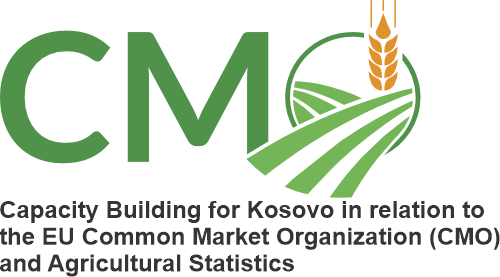What are the marketing standards?
The EU marketing standards for fresh fruit and vegetables, which form part of the EU marketing rules, apply at all stages of the marketing chain, at import, export, primary production, at wholesale, retail markets, including supermarkets.
EU general marketing standard defines minimum quality requirements for fresh fruit and vegetables = they must be sound, fair and of marketable quality.
The general marketing standard applies to all other species of the fruit and vegetables; the minimum quality requirements of the general marketing standard are:
Products must be:
- Intact
- Sound
- Clean
- Practically free from pests
- Practically free from damage caused by pests affecting the flesh
- Free of abnormal external moisture
- Free of foreign smell or taste
- Sufficiently developed
Products covered by the specific marketing standards cannot be sold for fresh consumption unless they meet the relevant standards.
Which products are covered by the EU specific standards?
- Apples
- Pears,
- Citrus fruit,
- Kiwi,
- Lettuces (including curled and broadleaved endives),
- Peaches and nectarines,
- Strawberries,
- Sweet peppers,
- Table grapes
- Tomatoes
Products must be labelled at all stages of marketing with the name and full address of the packer/dispatcher and the country of origin (in full).The labels on those products covered by specific marketing standards must also show the quality class of the produce, and if required by the relevant standard, the variety or type, size, and weight or number/count in the boxes.
Fruit and vegetables not covered by a specific marketing standard shall conform to the general marketing standard. However, where the holder is able to show that the products are in conformity with any applicable standards adopted by the United Nations Economic Commission for Europe (UNECE), they shall be considered as conforming to the general marketing standard.
International UNECE quality standards
Standards are developed on request from countries – any UN Member State. The UNECE standards are developed by Member States experts, representatives of governments.
Why do we need quality standards?
- To define the trade language common for all participating subjects
- To make the international trade easier
- To prevent the placement and sale of low quality products on the market
- To build confidence and occasions on the market
- To support the high quality production
- To increase the profitability of producers
- To protect the customer interests
- To break down the technical barriers to trade (TBT)
- To apply the same requirements in all EU countries
The legal context: EU level
The marketing standards adopted for the fresh fruit and vegetables are based on the UNECE International quality standards for fruit and vegetables. According to the EC Regulation 543/2011, preambule (6) and article 3.1, where specific marketing standards are to be laid down for individual products, these standards should be those as set out in the standards adopted by the United Nations Economic Commission for Europe (UNECE). Where no specific marketing standard has been adopted at Union level, products should be considered as conforming to the general marketing standard where the holder
http://www.unece.org/trade/agr/standard/fresh/ffv-standardse.html

